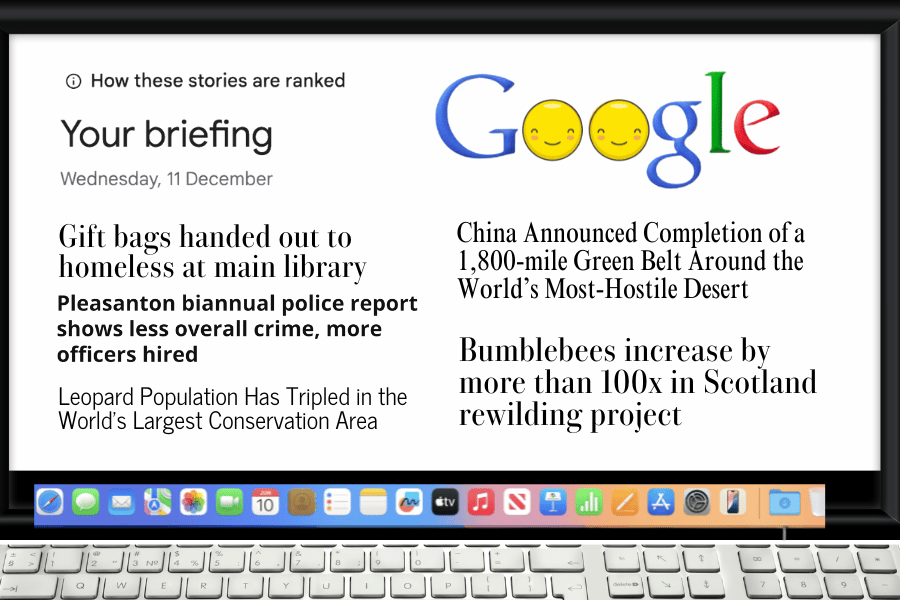
by Madison Dapcevich | 7 Mar 2025 | Journalism, Media Literacy, News Decoder Tips
It is hard to tell if information has been aggregated when you find it on the internet. Getting a story right means tracking down the original source. People play a game of “telephone.” (Illustration by News Decoder) In News Decoder’s Top Tips, we...

by Marcy Burstiner | 28 Feb 2025 | Journalism, News Decoder Tips
The more complicated an issue is, the more you need to humanize it and make it comprehensible. That’s where the anecdote comes in. A guy tells a story about a porcupine to a friend. (Illustration by News Decoder) In News Decoder’s Top Tips, we share advice...

by Marcy Burstiner | 21 Feb 2025 | Journalism, News Decoder Tips
An audience will connect to a news story that is about something that concerns them even if they stumble on it long after it is published. A person holds a newspaper with a pine tree branch inside, symbolising “evergreen” content. (Illustration by News...

by Marcy Burstiner | 7 Feb 2025 | Journalism, News Decoder Tips
News reporters are needed more now than ever before. If you’ve got a lot of curiosity and a little determination you have what it takes. Young woman talks on a phone. (Credit: Eliza Alves) In News Decoder’s Top Tips, we share advice for young people from...

by Marcy Burstiner | 10 Jan 2025 | Education, Journalism, News Decoder Tips
Think you know no one of importance? Most important people were once nobodies. A high school classroom of future leaders. (Illustration by News Decoder) In News Decoder’s Top Tips, we share advice for young people from experts in journalism, media literacy and...

by Marcy Burstiner | 3 Jan 2025 | Journalism, News Decoder Tips
People might read about a problem but they’ll soon move on if the story doesn’t convince them something needs to be done. They need proof. Cassandra, from Greek mythology, in front of the ruins of Troy, bemoaning that no one listened to her warnings....

by News Decoder | 27 Dec 2024 | Environment, EYES, Journalism, Media Literacy, News Decoder Tips
Media often reports climate change as a doom and gloom scenario and ends up pushing people away. Can we get them to tune in and take action? Listen to the “Eyes on Climate” podcast. In News Decoder’s Top Tips, we share advice for young people from...

by Norma Hilton | 13 Dec 2024 | Journalism, Media Literacy, News Decoder Tips
Relentlessly bad news makes people anxious and depressed. But there is good news to tell, if you make an effort to find it. Real examples of good news headlines on an imagined Google news feed. (llustration by News Decoder) In News Decoder’s Top Tips, we share...

by Marcy Burstiner | 6 Dec 2024 | Journalism, News Decoder Tips, Reporting
When you interview someone you might be more nervous than the person you interview. Here’s some tips for setting yourself at ease so you can get great info. Man being interviewed by a woman. (Credit: Gustavo Fring/Pexels) In News Decoder’s Top Tips, we...

by Marcy Burstiner | 29 Nov 2024 | Journalism, Media Literacy, News Decoder Tips
Conspiracy theories are fun to argue about but they are dangerous ideas to spread. Here’s some ideas to help you avoid doing that. Two teens discuss conspiracy theories. (Illustration by News Decoder) In News Decoder’s Top Tips, we share advice for young...










